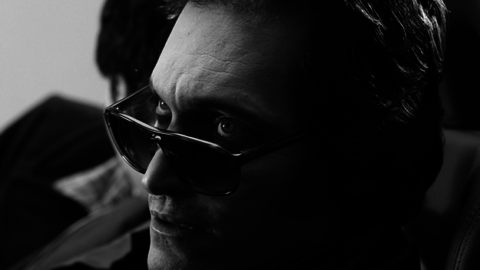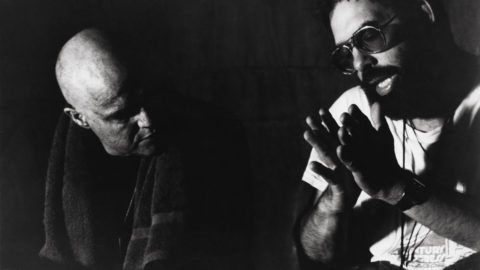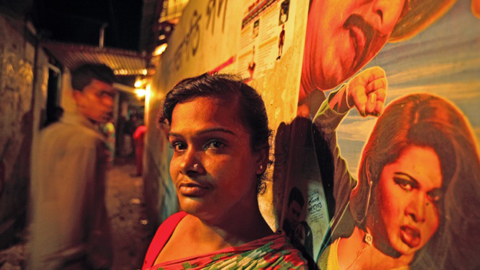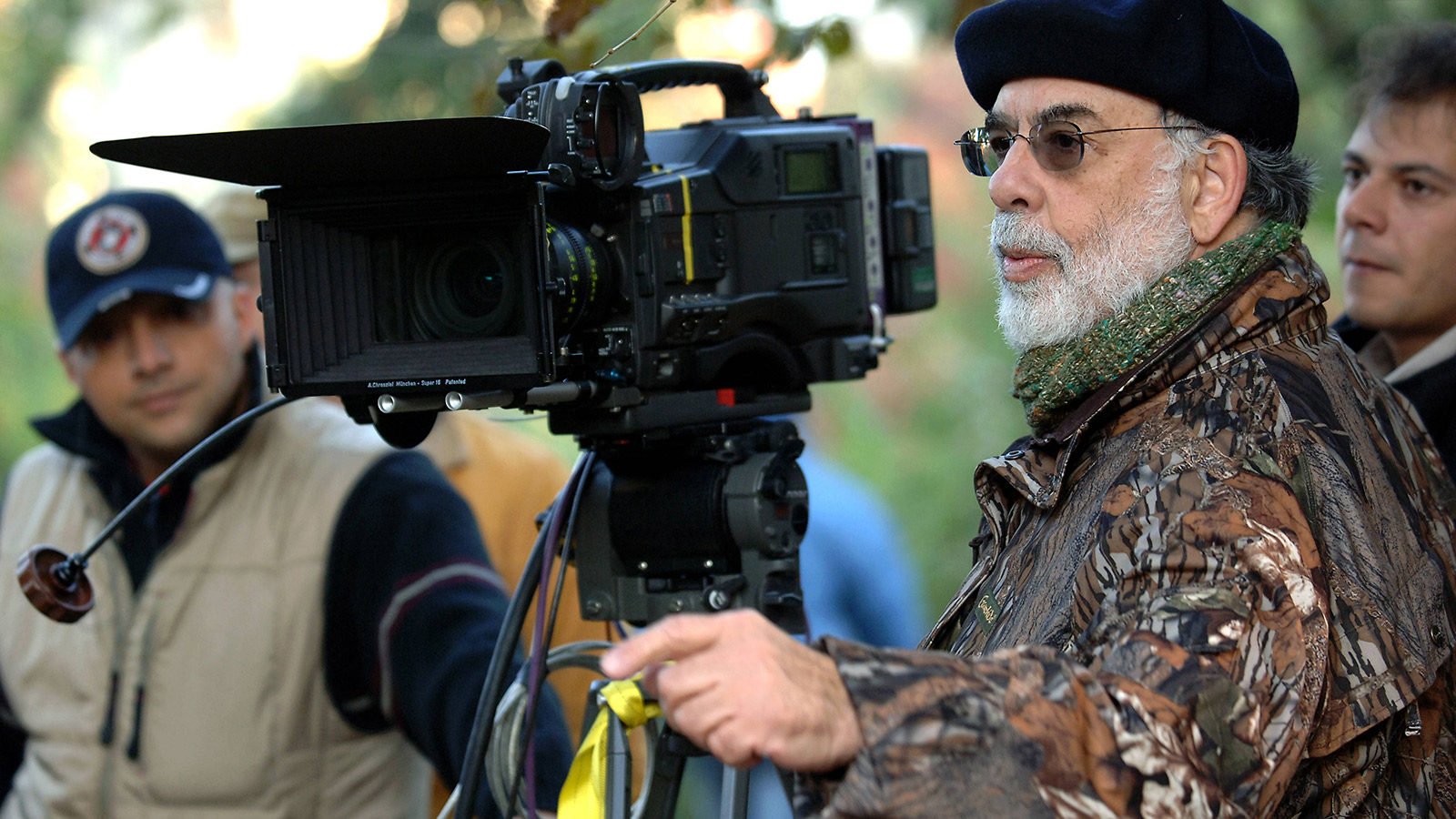
Brief Encounters: Francis Ford Coppolla
He’s Francis Ford Coppola, 68, born in 1939 in Detroit, where they made Fords, the people’s car. It’s impossible to think of American filmmaking without him, because his great films were the moral center of art’s engagement with society. A man of appetite and balance and struggle, he owned a studio with nine stages that he lost after the debacle of One from the Heart. So he went to the vineyard to fortify himself—and bought it. In vino veritas.
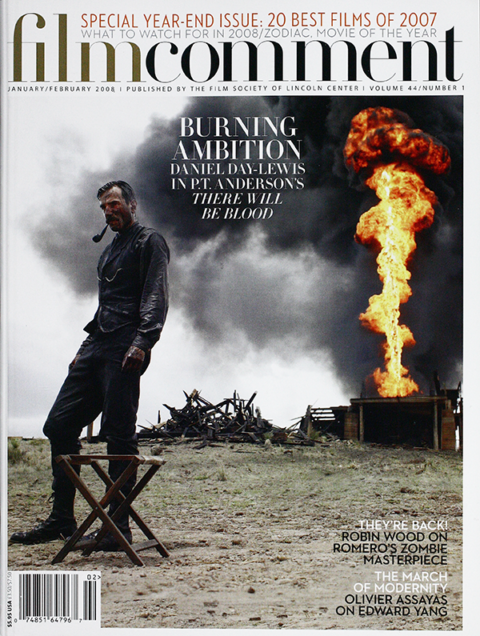
His latest film, Youth Without Youth, based on Mircea Eliade’s novel, is unquestionably a personal film. Its central character, Dominic Matei (Tim Roth), is an elderly Romanian scholar who is magically restored to youth after being struck by lightning in 1938. He devotes himself to asking the itchy questions maybe only a Coppola would pose on screen anymore: What’s time? What’s the root of language? What’s the soul? What’s love in a mad world? It’s pure Coppola at 66, or as he says, “50-16.”
When one thinks of your Seventies work, it’s about hypocrisy, about the gap between what a society says it’s all about and the way it actually behaves. Why was it so important for people in our generation to take on the questions of hypocrisy?
Francis Ford Coppola: There’s a line in Conrad that he can’t abide the stench of a lie. The lie is such a dangerous idea, because if you’re able to say one thing and do another, then there’s no way for a society to get traction, no way for the human species to grow and improve. I was impressed with that line when I was working on Apocalypse Now, because you understood if you could have a war that was being fought to do good but was doing bad, hope was almost lost. How do you ever get the benefits of all our human gifts, if you just lie about what you’re doing?
When John Milius wrote the script, the line that was so important to him. “We teach the boys to drop fire into peoples’ homes but won’t let them write the word ‘fuck’ on their airplanes.” The idea that morality could be so misused is what makes wars possible. Who wants to send someone to do something bad? And both sides are praying to their God, and their soldiers are blessed because they’re ostensibly going to do something good. That can only happen because someone’s lying, or they’re all lying.
As the Seventies came to a close, and after Apocalypse Now, there was a gestalt shift inside of you, and you started asking the next set of questions. Ones that a mature man asks: not what I’m against, but what I’m for. Aside from financial motivations in making your decisions, starting with the S.E. Hinton stuff, you were no longer going to take the national pulse and regard it as your mission to explain America to itself.
Well, indeed your interests do change. As young man I was interested in cars and girls. That’s all I could think about, obsessively. After some years, you stop thinking that way. In the last 15 years I’ve become much more of a reader than I ever was. I used to read because I had to write that paper on A Winter’s Tale, or whatever. Today I’m always reading a book, and when I go to bed it’s pleasurable because I know a book is waiting for me. It’s like a companion, and I read and I fall asleep.
My mind isn’t on money or success or fame. Also, I’ve been a well-known person since I was 29 or before, so I’ve kind of had that, and it’s not particularly attractive to me anymore.
Are you reading for any particular thing, are you focused, or eclectic?
I’m somewhat focused. I’ve been reading a lot of Latin American authors, because arguably in the last 70 years, that’s the news. It’s the Chileans. The last group of books was this guy Roberto Bolaño [The Savage Detectives / b: 1953—d: 2003]—ever hear of him? Within the group of García Márquez, Vargas Llosa, Carlos Fuentes, Cortázar, he’s the new one. Also poets. I never had a talent to truly enjoy it, so I‘ve made a real effort—Octavio Paz, volumes of poetry.
Right now, I’m reading The Red and the Black. I tend to read great books because I figure if I’ve got the time I should read The Red and the Black [arches his eyebrows], or something that’s important to our culture, which makes it hard for me to read contemporary authors. The South Americans are contemporary . . . but they represent a movement.
Have your thoughts about America changed over time?
[long pause] Well, you know as a little kid, I was raised in an Italian-American family, and my mother said to me, “Francis, you’re so lucky you’re an American. America is the greatest country in the world.” And my father said, “Yes, but you’re also Italian, and Italy produced some of the greatest painters, musicians—the greatest culture in the world.” So we always thought we were really lucky being both.
I am extremely positive about the future of America. Because we are an immigrant country, and we continue to make use of our immigrant [tradition]. And today more than ever with Hispanic immigrants, Oriental immigrants, we are constantly refreshed by immigrants who come here with their dreams for a better life but ultimately transform America. That’s what makes America still the most exciting country in the world, that we are the only country that is an immigrant country. I heard that Gonzalez is the third most frequent name, and that Rodriguez beats out Turner [laughs]. So we’re constantly being remade, and I still have this childlike belief that we’re the good guys.
But the reality of our behavior—not only recently but back through the Cold War and in Latin America and all over the world is very disconcerting. The problems we have today aren’t going to be solved by this [Bush] administration but by the next one. So hopefully whoever wins this presidential election will make good decisions, not based on ideology or constituency.
Now, in my heart, I really want to see an independent be president. I’m very negative toward all these campaign contributions. I don’t believe that millions of dollars are given to candidates that are not called back. In California, I saw—and oddly enough it was the Democrats—what that whole system of donating election money does. And famously, the Gallo family, when Ernesto died, because of its generosity to the party got from the state of California a one-day reprieve on estate taxes—called the Gallo Law—so that none of their billions of dollars would be taxed. Our tax laws are riddled with loopholes, which all come from campaign financing.
So in answer to your question, which I realize I haven’t answered, I feel more harsh toward the practices that are accepted and would love to see a political system that can attract the talented people that have become involved in political leadership.
Is it harder to function in the wine business than in the film business? Is it harder to break in? Is it more or less honest?
My timing was pretty incredible. I fell in love with the cinema in the Fifties and Sixties. When I was in college, I was a drama major and started the Hofstra Cinema Workshop and three people came. There wasn’t this fascination with the movies. And then I go to film school, and suddenly everyone around me is interested in cinema, and you go out and young people are on dates, and it’s “What did you think of The Graduate?” Suddenly there were programs about movies, and you could see magazines and special shows about movies on TV. And I realized the movies were a hit with my generation, everybody was talking about movies and fortunes were being made by critics.
Then I went off in the wine business and I bought this gargantuan estate in the Napa Valley for the price of a house in Beverly Hills—Rutherford, 2,000 acres. And suddenly everyone is talking about the health benefits of wine, and everyone’s drinking wine. And just as the movie business was, suddenly it’s the business.
It was nothing other than being Italian-American and my family always drank wine, and there was always something romantic about living in vineyards . . . I just lucked out. And now wine consumption—I don’t know the statistic—but it’s gone from something like 6 percent to 8.5 percent, but 8.5 percent of a population this size [rolls his eyes]—there aren‘t enough grapes to go around anymore.
Then I go buy a little dumb hideaway in Belize, because I sorta enjoyed being in the Philippines making Apocalypse Now and I had little boys. So I go to Belize and buy this $40,000 place, where there’s no electricity, no nothing, and my wife wants me to get rid of it and I have to hire someone to take care of it because it’s so remote. The next thing I’m in the resort business and suddenly the travel business is the hottest thing on earth.
So I don’t know what to say, it’s not that I’m smart. I sorta follow my heart, and get involved in things that I love, and then the timing is similar for other people and they happen to love them, too. And oddly enough I became very wealthy doing things that in a million years I never thought I’d be involved with.
This is all because you were born in 1939. I have a brother who was born in 1939 and the guy stumbles into the closet and it’s full of money.
Is it the year that does it? That’s what it is, we’re there a few years early… I’ve often thought, what irony, I make One from the Heart, it’s a disaster, I lose everything. Who would’ve thought in a million years that 10 years later I’d make a fortune in the wine business? And that I’d be back doing movies like Youth Without Youth, self-financed again? It’s part luck, it’s part being born in 1939.
One of the projects you’ve wanted to get off the ground was Megalopolis. The concept was that the parallels between Imperial Rome and America are inescapable. Do you still want to explore that?
I felt that Republican Rome was the historical counterpart of America. It had the big Cold War, it defeated Carthage. They were great engineers and road builders and Americans were talented but a practical talent with can-do Yankee ingenuity. And Rome itself was New York. Cicero was like Mayor Koch, I always thought.
I wanted to make a movie about utopia. And I settled on a little-known footnote in history, the Conspiracy of Catiline. Cicero, who was the consul then, defeated this aristocrat, Catiline, who was going to take over the city and burn it. And I thought, what if he wasn’t going to destroy it but make it into a new society? So I began a Catiline Conspiracy with a character like Robert Moses, but an enlightened Robert Moses, more like an Ayn Rand. And it was a political fantasy with the premise that maybe human beings are so creative and talented they can make a world where the priorities are all positive, that would be good for everybody.
And, of course, right while I was working on it and even shooting second unit, the World Trade Towers tragedy happened. Oddly enough, the original story had an old clunky Soviet satellite on its last legs fall out of the sky and destroy a section of downtown New York. And the issue was what are you going to build in that space? The Ayn Rand character wanted to build a city within New York that was the model of what a city could be. For an architect, the first question is what are the people going to do there? So I said the people of the future are only going to be concerned with a few areas, because they’re not going to work anymore: to create, to learn, to perfect—to physically perfect—and to celebrate by having parties and festivals. So the city should be designed to accommodate those things. So in that vague Rome-America setting, the struggle was about how to make that happen.
In the writing of that script, I realized the truth, that we are capable of doing that. The problem is that the people in power don’t want it to be that, because today they gain their power from hatred, disagreement, and conflict. When you talk about the Middle East, the people today—they don’t want peace. The people on top, they like it the way it is.
Do you think you’ll make that film?
[Shrugs] It’s not in my thinking. I’m making another film [Tetro] in Argentina starting shortly. It’s much more personal. It’s much more like Tennessee Williams or Eugene O’Neill trying to understand what’s going on in my own house. It’s not autobiographical, but it’s based on a family with a lot of creative people.
I rewatched Godfather Part III, and it struck me that it was about the futility of trying to protect your children. What does having children do to the creative life?
I was always [creative] as a kid—maybe because I had polio and was quarantined from other kids, plus my father moved a lot so I never really had friends. But when I was 17 or 18 I suddenly came a little bit into my own in the drama department in high school. I used to work as a drama counselor… in some camps in upstate New York. And I’d do the plays with the six and seven year olds, and at the end of the year I’d do plays with all the different camps combined. And I always loved being with children, and I think I was a really good counselor. I had a bunk with nine little boys, and I’d read them books and go on treasure hunts and just have a fun time. They’re all now hedge fund operators [snickers].
I was married and had kids pretty young, at 23, and by the time I made Godfather, I had three kids. And I just enjoyed my children. It’s always a shock for me to see how old the men are today before they get around to having kids. I had a 20-year-old son (Gian-Carlo) when I was 42. And now his daughter is 21, so I’m in line to someday be a great-grandfather, which is a thrill.
My children were always a delight to me, so much so that I always brought them with me, which is something I picked up from my father, though I don’t think he did it for the reason I did. If I was a movie director and going off to the Philippines or the Dominican Republic and the kids had to stay in school, I’m sure I would’ve lost the sense of . . . God knows, if I’d even be married. So as a rule I always took my family with me, and as a result my kids were all raised around movie sets and are all now in the movie business. I also had many nieces and nephews, and at Napa we’d have them in the summer, and I’d say, “Awright, this is gonna be one-act play summer.” And everyone would go [mimics] “Aww, we donwanna do one-act plays, we wanna go fishing, it’s summer.” But little by little, they all did one-act plays.
So out of those summers, all these talented kids came. Sofia. Jason Schwartzman. They blossomed out of the experience of doing shows when they were 16, 17. So the young generation being creative seems natural to me. That’s the real pleasure of life, to pursue creative work. And my wife as a visual artist believed the same and brought them to see far-out artistic exhibits that I always scoffed at.
My parents always went, “You didn’t do well, you’re never going to amount to anything.” Well when a parent tells that to a kid it’s like God [cowers in his seat] telling them that. We used to tell Sofia, “You’re Superwoman, you can do anything!” And she’s fearless, that girl. And she’s tiny, you know. So I feel that living close with the children has been the real strength of our family.
In Godfather III, when Michael [Al Pacino] loses his daughter [played by Sofia], it ages him before his time, and he collapses and dies. So I thought that you were addressing something personal. How did you deal with losing your son? Did it change your worldview, your attitude toward work?
Well that movie [stabs the air for emphasis] . . . I never wanted to make a third Godfather. I never wanted to make a second Godfather. I didn’t think The Godfather was a serial-type story. To me the first Godfather was the Godfather, and everything else is greed.
The third Godfather happened so late. It helped put me over the top getting out of my financial hole and getting my career started again. Mario [Puzo] and I wanted to call it The Death of Michael Corleone, since that was what we were setting out to do. But for Michael just to die for his sins—it’s gotta be worse than that. Worse than that would be to put some innocent kid in the position of being the hope of the family and going on and having a beautiful future—the death of a daughter would be a far worse punishment for him.
Few people, thank God, go through the experience of losing a child . . . or even in some instances in war of losing more, which is unthinkable. You know [pauses] . . . it’s not an experience you get over. Especially in my case. It was my first son. He was 22. Imagine losing a baby [cradles his arms and rocks]—heartbreaking, a baby. To lose someone who has become such a vital part of your family—and in my case my life, because he more than just a son, he was my collaborator and my partner. You don’t get over it, you can’t get over it, you’ll never get over it. And at its worst, I think of it as the loss that keeps on losing: there isn’t a day that goes by that you don’t say, “Gee, what would he be contributing?”
I remember when he died we were in the lowest of the low financial condition, broke, yet we were living in this beautiful mansion in Napa that was in trouble. He never took that we were broke so seriously—we still had a lot of fun. And I think, Roman got to be a director, and Sofia got to be a director, and I think, What would Gian-Carlo be doing?
Whenever I read about someone [I know] losing a child, I always write to them because I know what’s happened. First of all, it means 10 years of waking up and that’s the first thing you think of. You wake up and think, Oh, no, it is true, it is true, he is gone. That goes on about seven years. Every morning, the first thing is the horror. And then after seven years, you wake up and realize you didn’t think of it first. And that’s the beginning of what nature ultimately does for you, it allows you to get past it on that level. But it’s not something you get over.
Looking at some of the films you made then in the Nineties, you were in them, but Youth Without Youth is the first really, truly personal picture. It has a spiritual quality, it deals with rebirth. Dominic is not someone who goes seeking youth, but has youth thrust upon him and ends up trying to find meaning out of a second chance. Your work has changed. Youth Without Youth reflects that change within you—what the meaning of life is, what the meaning of the work is versus the choices one has to make. It seems very close to a post-Gian-Carlo world for you.
Well, Gian-Carlo would very much have approved. He liked this kind of filming. When we lost the studio in L.A. [after One from the Heart], and all the equipment was locked up, he broke in one night and stole the lenses we made Rumble Fishwith. [grins] Because the lenses were the jewels. And we still have them to this day. So he’s very much involved in the spirit of this filmmaking, and the way we did it. It was very ingenious. It isn’t a little film. We had lots of production demands, costumes, Nazis, hair, age makeup. It wasn’t a low-budget art film where you have three people, like Baby Doll, which was one of the best Tennesee Williams movies ever made. This new period of my life is very much part of Gian-Carlo’s philosophy.
You know when I lost my son [voice waivers, pauses] . . . Nature puts you in shock. So I wrote to him, believing that if I wrote a letter and put a stamp [on it] and it got sent to a mailbox in California that he would . . . get it. So over 21 years, I have had an enormous correspondence with him. Of course what it turned out to be is a reflection of what I’m facing, or what I’m thinking about in my life, but I never lost touch with him. And even in my madness I believe. When Sofia was making her first picture, The Virgin Suicides and then Lost in Translation, I’m saying to him [whispers to Gian-Carlo], “Go there. Be sure you’re there so they treat her well.” I always did that with her and with [Roman], but I never did that for myself. When my films open, it’s okay, but he was there, protecting Sofia…
[shrugs] So I feel he would love the new lenses we bought, the way we handle the technology. And I’ve even discovered his spirit . . . I have this young Japanese-American assistant from Wesleyan who helps me in some of those areas that my son helped me with. I remember once Keanu Reeves was living in our house and came down from the attic, where Gio used to live, and at eight in the morning had a beer and a donut—it was like a reincarnation. So I see lots of evidence of him, which is a positive thing.
So I’ve now decided I’m going to make one movie after another as long as I can. I’m going to write them, and they’re going to be original scripts. Youth Without Youth was an adaptation that got me to this place. That’s why I don’t think of Megalopolis so much. I can pretty much finance a movie under [waves] $15, $17 million a year and lose . . . all of it. I can’t do it for [waves bigger] $80 or $100 million. [pauses] Or maybe I can.
But my son would approve of this style. It’s quasi-guerrilla filmmaking, very advanced technologically. The look of it is beautiful, but it’s all done in a new way. It’s not film, it’s all hi def.
And the language you used to show those interior voices and inner consciousness…
All we did was we shot him [Tim Roth] and had him look right to left, left to right playing the same scene. When you cut it [together], it’s like he’s talking to someone.
It’s very much out of Abel Gance—those triptych panels from Napoleon…
At first I didn’t know how to do it, I looked at ways that were all more elaborate. And then I thought, I’m just going to do it with screen direction.
But really what I’m saying to you is that my son, whom I’ve definitely kept in touch with, has blessed this direction [I’ve taken]. All my kids are very tight with this. Sofia is a personal filmmaker. She made Marie Antoinette the way she wanted to. And speaking of Abel Gance, she was criticized because she didn’t take Marie past her youth to the guillotine and the whole French Revolution. Neither did Abel Gance take Napoleon to the second half. He planned to.
Roman is really a personal filmmaker, even to the point that he’s very innovative. So I feel very blessed not only by having my children but that they approve very, very, very much with the direction [I’m taking]. They’re happy that I’m not going to just, you know . . . What is the formula for an A-list director? If you want to remain one, you have studios develop three or four projects that you pick and they pay millions of dollars for screenwriters, and then you make a $150 million movie and get a $10 million fee. The other scripts get done by other people, and you’re the executive producer. That’s how it’s done.
Having worked on this picture and read Mircea Eliade, what do you think time is? Has your thinking about time changed?
Time does not exist in the way the human being conceptualizes it. We’re able to conceptualize the future. Well, the future doesn’t exist. Nor the past. They’re concepts. We’re always in the present. There is only the present. But we have such a sophisticated consciousness that we’re able to deal with these ideas and actually live with them, and they might be useful. But for sure there is no such thing as time.
I’ve always had the sense, even as a child, that things are not as they appear. We live in a very orderly, Western, Kantian, practical world. Up and down, black and white, good and evil, male and female. The Oriental mind thinks those things are all the same thing—when viewed from a certain perspective.
So it was a struggling with time and consciousness that got me to give my Megalopolis script to Wendy Doniger, the Eliade scholar I had known as a kid, and she sent me some quotes about time from Youth Without Youth. I went, Wow, this is interesting, it’s helpful, why don’t I read this story? And when I read it, I thought, I want to make this, because it’s such a Twilight Zone, science-fiction love story. It had everything that I wanted it to have.
So what is your definition of a life well spent?
I have a building in San Francisco that’s been Zoetrope’s headquarters, and I have the top floor. And I have a key that enables me to go right down to the first floor and it doesn’t stop anywhere else. Which is a great luxury of owning a building. And for some screwy reason I played this game: I’m on eight and I push one—it’s not a minute even. And as I see the numbers, 7,6,5,4 . . . I started to pretend that I’m gonna die when I get to zero. So I’m going down and thinking, Gee, I got to have such an interesting life. I had a father who played the flute, a mother, got to be married and have these beautiful kids and have a nice wife, I got to be in the movie business. I got to be a success, and not be a success, and be a success again, and I got to be in the wine business . . . and as I’m thinking all this stuff, it suddenly comes to zero and the door opens. And I don’t die.
My feeling is that if I have the privilege of knowing I’m going to die, that’s what I’m gonna do. A happy death is that I will be so lost in all the wonderful things I’ve gotten to do in my life that when I die, I’m not going to notice it. It’s going to be an interruption. You gotta admit, I’ve had a very colorful life. And have been blessed.
And even tragedy, that’s the price of admission to being a human being. No one is immune to a tragedy. God hope that it’s not children, or a child, but you’re going to lose someone you love, certainly your parents, your grandparents. That’s the price you pay to be a human, which is a privilege. You don’t want to be a rock. You don’t want to have no feelings. Of course, it’s heartbreaking.



